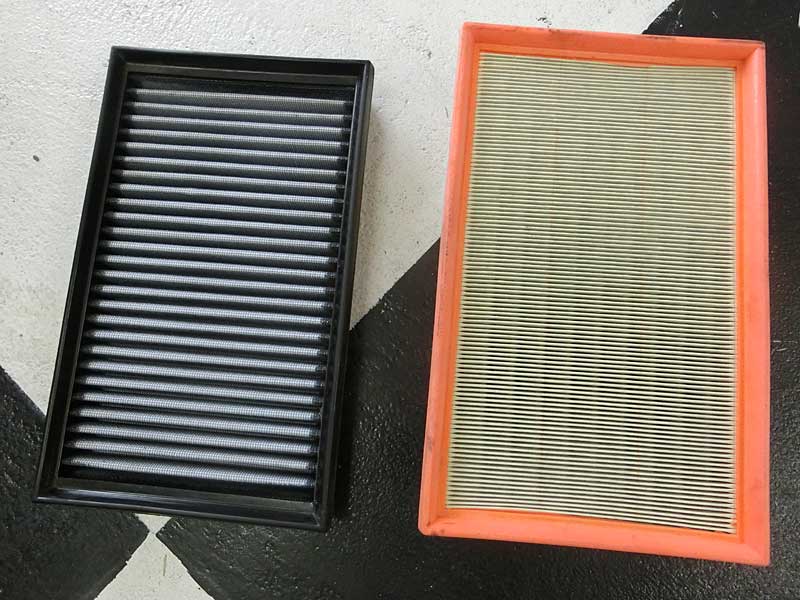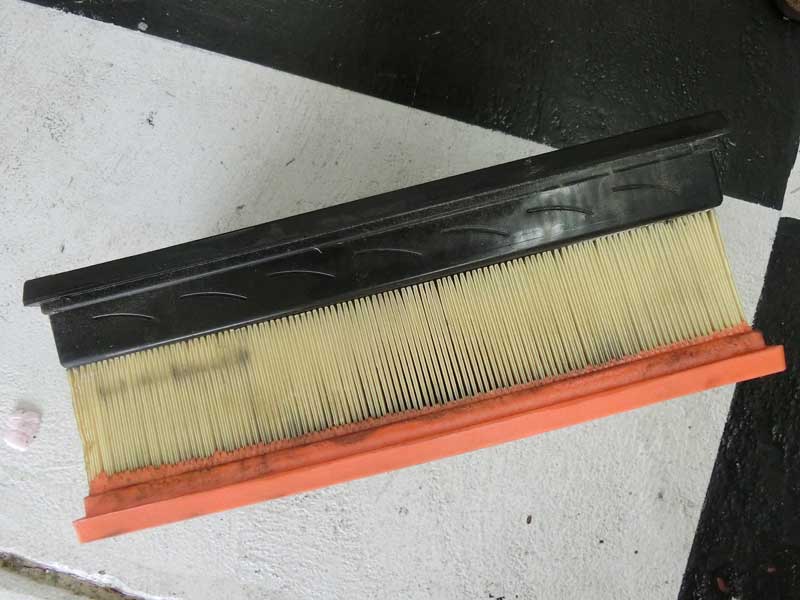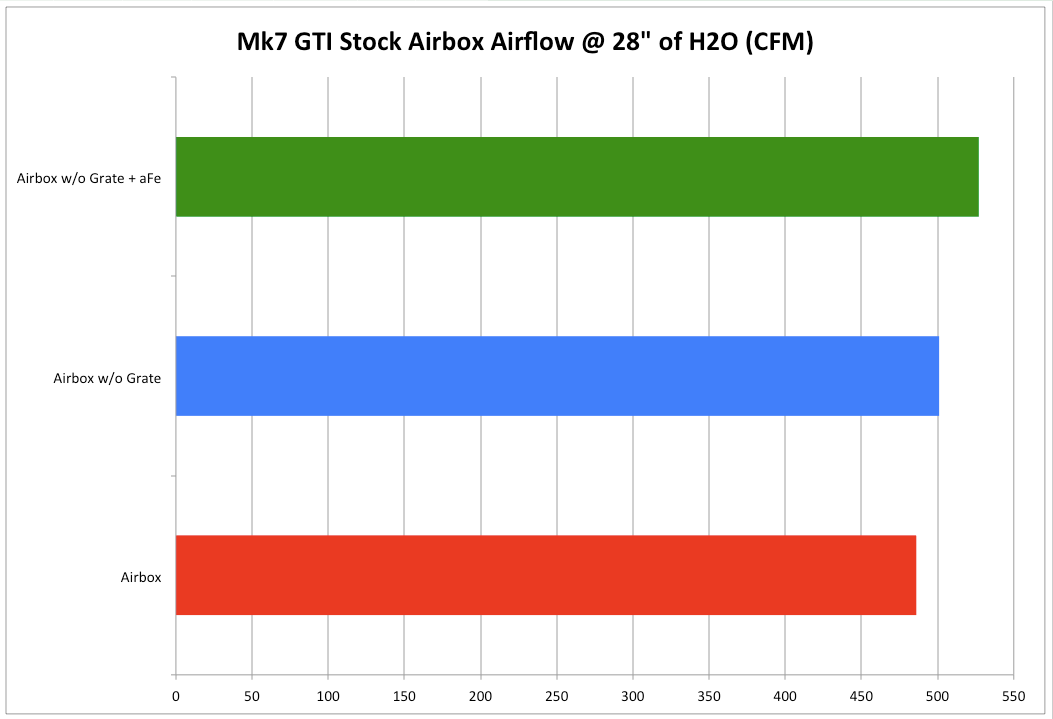Continuing the effort to improve the performance of the Mk7 GTI stock airbox I am turning my attention to the air filter.
In the previous post addressing airbox performance I utilized a stock air filter with and without the airbox grate. Removal of the grate results in a small increase in airflow and that configuration provides the starting point for the next test.
The Test Setup
Now the stock air filter will be removed and replaced by an aftermarket product.

The particular air filter that I chose to use for this test is the aFe Magnum Flow Pro Dry S Air Filter.
I specifically wanted to use a dry air filter on my GTI that could be washed for repeated use.

As for the potential performance gains from using this aFe air filter, the information provided by aFe Power states:
Up to 50% increase in Flow – 604 CFM at 1.50″ H20
I suspect somebody was not paying close attention to what they were typing when they put this information on their website because at 604 CFM a pressure drop of 1.5″ of H2O would be miniscule.
As was done with the stock air filter test the airbox was installed on the flow bench. This time the aFe air filter was installed.

The Results
The aFe Magnum Flow air filter did produce higher airflow numbers as compared with the stock air filter from my Mk7 GTI.

Airflow through the stock airbox has now been increased to 527 CFM @ 28″ of H2O. This is a little more than a 5% gain in airflow for the stock airbox versus the previous best.
How do these results compare with the advertised gains? aFe Power claims “up to” a 50% increase in airflow. This test showed nowhere close to a 50% increase, producing only a 5% increase. The 527 CFM was achieved at 28″ of H2O, which is quite a bit more pressure drop as compared to the 1.5″ of pressure drop aFe claims at 604 CFM. My suspicion is that the 1.5 number aFe is reporting is in fact PSI. If the readings I made were mathematically scaled up to 40″ of H20, which is approximately 1.5 psi, the CFM would be approximately 630, much closer to the 604 that aFe is claiming.
The aFe Magnum Flow dry air filter does provide a 5% gain in airflow through the Mk7 GTI stock airbox as compared with the stock paper air filter that my GTI is equipped with.
In a future post I’ll be looking into how the channel at the top of the grill affects air intake of the stock setup.

Referring to the last question.
would be nice to see K&N , BMC , AFE air filter compared
I could test them if somebody supplies the products.
Hi Jeff, I am an engineer at aFe and have been following your work for the past 2 years! I own a 2017 GTI and am actually working on designing a number of parts for it right now!
I just wanted to touch base with how we run our flow tests here for the OE Replacement air filters like you have above. We test the filters outside of any intake, instead creating fixtures for each filter to run on our flow bench here. Without the restriction of the full air intake system, we do see significantly higher airflow values, and typically we aren’t even able to flow past 3″ H20 due to the limitations on our flow bench!
Hope this clears a few things up for you.
Keep up the work on the GTI! Its becoming more and more impressive every time you update us on your progress!
Thanks for the insight into the supplier side of testing. That is a shockingly low amount of pressure to be maxing out your system at. I’ve tried testing the filters on a stick direct to the bench and can reach 25″ of H2O before nearing my max flow rate around 615 CFM.
Thanks for the feedback, I appreciate it!
Magnum FLOW Pro 5R Air Filter(Oil) vs Magnum FLOW Pro DRY S Air Filter??? Which is better??
why dry and not oiled?